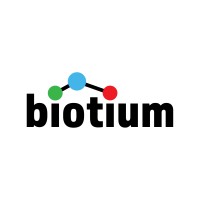CD324 Monoclonal / CF594 / CDH1/1525
Product Details
| Description | E-Cadherin / CD324 Monoclonal Mouse Antibody (CDH1/1525) | |
|---|---|---|
| Conjugate | CF594 | |
| Clone | CDH1/1525 | |
| Target Species | Human | |
| Applications | FC, IF, IHC-P, WB | |
| Supplier | Biotium | |
| Catalog # | Sign in to view product details, citations, and spectra | |
| Size | ||
| Price | ||
| Antigen | ||
| Host | ||
| Isotype |
About CD324
This gene encodes a classical cadherin of the cadherin superfamily. Alternative splicing results in multiple transcript variants, at least one of which encodes a preproprotein that is proteolytically processed to generate the mature glycoprotein. This calcium-dependent cell-cell adhesion protein is comprised of five extracellular cadherin repeats, a transmembrane region and a highly conserved cytoplasmic tail. Mutations in this gene are correlated with gastric, breast, colorectal, thyroid and ovarian cancer. Loss of function of this gene is thought to contribute to cancer progression by increasing proliferation, invasion, and/or metastasis. The ectodomain of this protein mediates bacterial adhesion to mammalian cells and the cytoplasmic domain is required for internalization. This gene is present in a gene cluster with other members of the cadherin family on chromosome 16. [provided by RefSeq, Nov 2015]
This gene encodes a classical cadherin of the cadherin superfamily. Alternative splicing results in multiple transcript variants, at least one of which encodes a preproprotein that is proteolytically processed to generate the mature glycoprotein. This calcium-dependent cell-cell adhesion protein is comprised of five extracellular cadherin repeats, a transmembrane region and a highly conserved cytoplasmic tail. Mutations in this gene are correlated with gastric, breast, colorectal, thyroid and ovarian cancer. Loss of function of this gene is thought to contribute to cancer progression by increasing proliferation, invasion, and/or metastasis. The ectodomain of this protein mediates bacterial adhesion to mammalian cells and the cytoplasmic domain is required for internalization. This gene is present in a gene cluster with other members of the cadherin family on chromosome 16. [provided by RefSeq, Nov 2015]
About CF594
CF®594 from Biotium is a fluorophore with an excitation peak at 593 nm and an emission peak at 614 nm. It can be useful in both fluorescence microscopy and flow cytometry. It is spectrally similar to Alexa Fluor™ 594, DyLight™ 594 and Texas Red. However, in flow cytometry, PE-CF®594 and PE-Dazzle 594 are superior alternatives. In microscopy, CF®594 has been validated in STED and 2-Photon microscopy.
CF®594 from Biotium is a fluorophore with an excitation peak at 593 nm and an emission peak at 614 nm. It can be useful in both fluorescence microscopy and flow cytometry. It is spectrally similar to Alexa Fluor™ 594, DyLight™ 594 and Texas Red. However, in flow cytometry, PE-CF®594 and PE-Dazzle 594 are superior alternatives. In microscopy, CF®594 has been validated in STED and 2-Photon microscopy.
Experiment Design Tools
Panel Builders
Looking to design a Microscopy or Flow Cytometry experiment?
Validation References
Reviews & Ratings
| Reviews |
|---|
Looking for more options?
1786 CD324 antibodies from over 37 suppliers available with over 61 conjugates.





